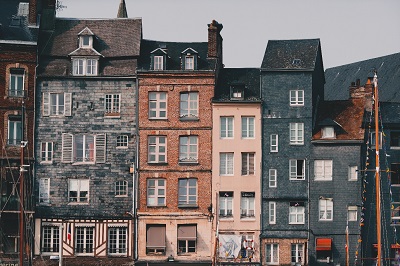
While trying to rent out a property, the most important decision you’ll make is deciding how much you’ll be charging your tenants. You need to ensure that you set a rental rate that brings you profit. At the same time, you have to make sure the rates aren’t too high, as you may end up pricing yourself out of the market.
Of course, you can’t just randomly come up with a number and start charging that much money from your tenants. There are certain factors that add or subtract from the value of the property.
If you’re trying to determine the rental value of your property, ask yourself the following questions.
1. Where is Your Property Located?
One of the most important things that affects the rental rate of an apartment or home is the neighborhood it is located in. Location is the most crucial factor when it comes to real estate. If you own a property in a prime location, you get the liberty to set your rates on the higher end. However, if the neighborhood is far from the city’s center, you’ll likely have to set lower rents. Factors that increase the value of a locations include:
- Walkable community
- Easy access to public transport
- Grocery stores at walking distance
- School, shopping malls, and other recreational options nearby.
- Friendly neighborhood
The more things your property can check off, the higher you can set the rent.
2. How Many Bedrooms and Bathrooms Does it Have?
The second most important thing that determines how much rent you can charge for your apartment is the number of bedrooms and bathrooms it contains. While buying a property, people are usually more concerned about the size of the area the property covers. But that’s not the case with tenants.
While renting a place to live, people care about how many rooms it offers. People with bigger families will prefer apartments with more bedrooms, and would be willing to pay more. In fact, each additional bedroom can increase the value of your property by up 200 to 300 dollars.
3. What Are The Rents for Neighboring Properties?
Since location plays such an integral part in real estate, it would be a good idea to be aware of the rent charges in the area your property is situated in. You need to strike a perfect balance between staying competitive in the market while also being able to make some profit. For this purpose, it is essential that you know how much rent is being paid for other apartments around yours – especially the ones that have similar internal structures as yours.
4. What Were The Historic Patterns for The Property’s Rent?
Most of the time, just knowing the current rent charge in your area isn’t enough. You also have to research the past trends of rental prices as well. Several online tools are available for this purpose.
Look into the rent spectrum of the area and figure out where the rent charged by previous landlords falls. However, keep in mind that any changes to the property or neighborhood (updated bathroom, new grocery store, etc.) can all affect the value. If there have been no significant changes, your rent will more or less remain on the same tangent as the previous owner’s.
5. Are There Any Special Amenities or Extras with Your Property?
Anything from a garage or pool to a big backyard, storage shed, exercise room, on-site laundry, or even a terrific view can all be counted as extra or amenities. Basically anything that your tenants may find useful or attractive can increase how much rent they’d be willing to pay. All things considered, having amenities will allow you to charge higher than other comparable apartments or houses in the area. For instance, if you cover utilities, you will be able to charge higher than another landlord who do not provide this benefit.
6. What is The Apartment Vacancies in The Area?
One of the biggest things that can kill profits are vacancies. If there are a lot of vacancies for similar apartments in the area, people will automatically opt for the one the one that comes at the lowest rent. However, if there aren’t that many similar apartments in the area, you can opt for charging a little extra without going overboard. So make sure to keep a tab on the rent situation in your area while determining the rent of your property.
7. Is The Rent You’ve Decided on Enough to Meet Your Expense?
If you’re planning on renting out a property, chances are that you need the money you’re getting from it. Of course, it isn’t always possible to pay all your expenses by renting out an apartment. However, you need to ensure that you can make a significant amount of pocket money from the rent you’re getting; enough to prevent you from struggling to meet basic needs.
Before deciding on a rent price, do an in-depth analysis about all your expenses, including property taxes, monthly mortgage payment, property management fees, home insure, management cost, etc. If the rent you are able to charge does not help you fulfil these payments, you may want to consider adding some amenities to up your prices.
And Remember to Remain Flexible
Even after taking all of these factors into account, you may find that your property has been on the market for a long time with no takers in sight. Setting rent prices is tricky, but you also need to remember that the prices aren’t set in stone. So if you feel that you aren’t finding any tenants, consider reducing the price a little. Start by shaving off as low as 50 dollars and see how that goes.
Remain adaptable to the situation. Find potential clients by informing them that you’re flexible on the price, and you’ll likely find a good tenant for your apartment. Just make sure to not let people take advantage of this flexibility.

